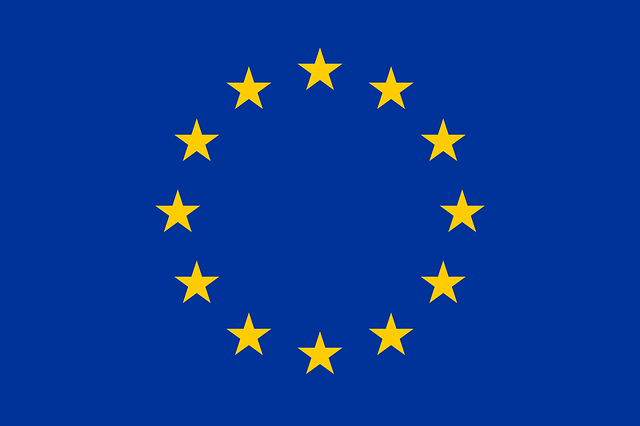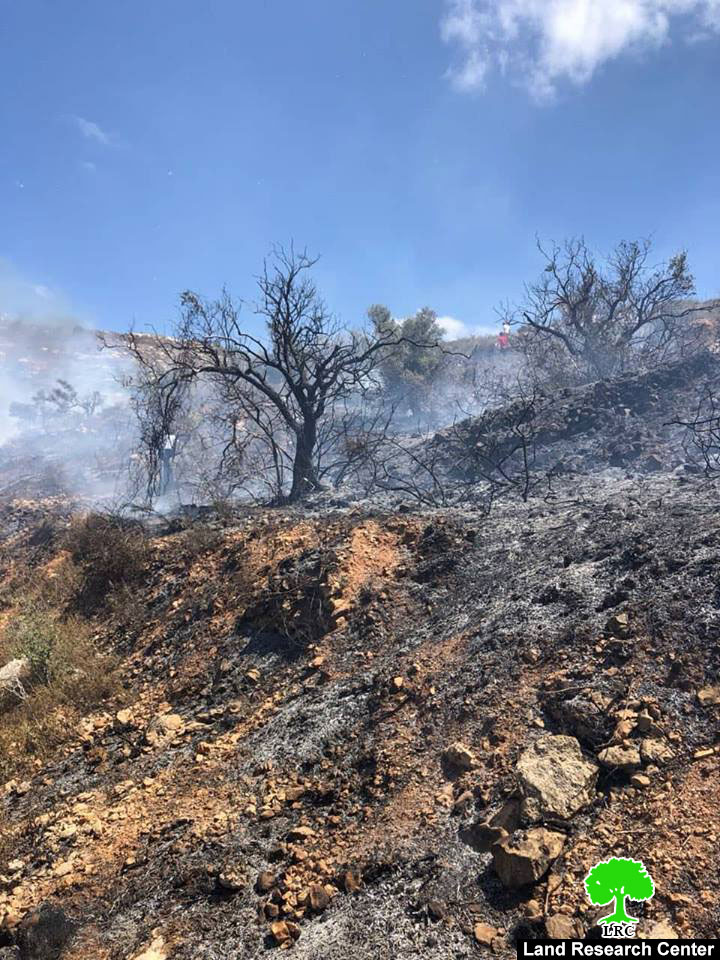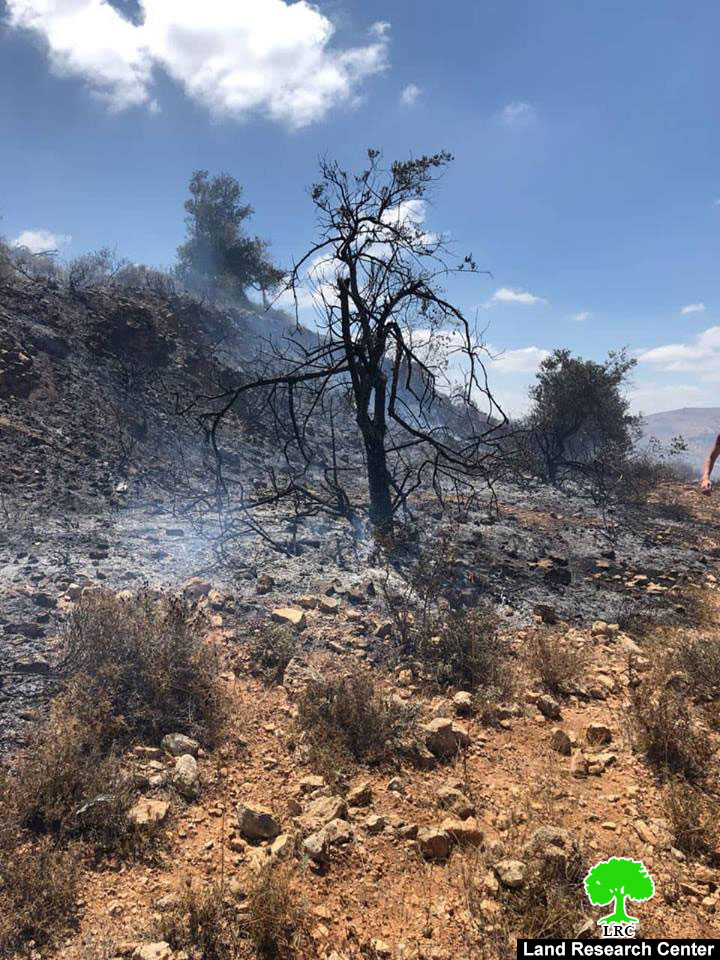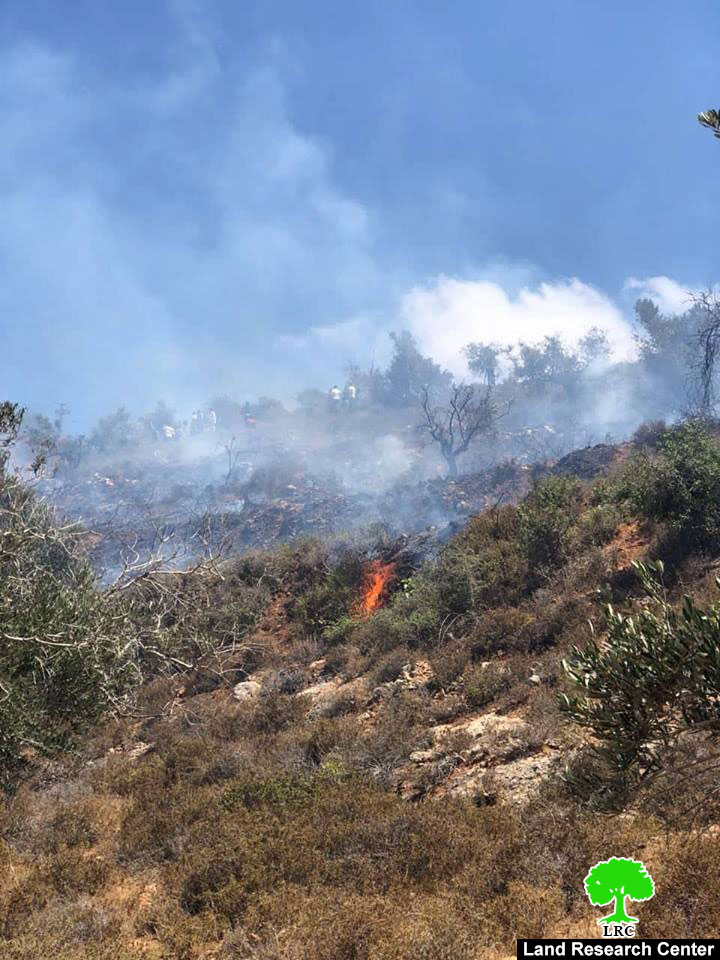2018-06-29
Setting Hundreds of Olive Trees on Fire in Beit Furik / Nablus governorate
Violation: Torching 400 olive trees
Location: Beit Furik- Nablus
Date: June 29, 2018
Victims: Farmers from Beit Furik
Details:
At aroud 13:00 on Friday, June 29, 2018, a group of settlers from Itamar, south of Beit Furik village, set fire to large areas of land planted with olive trees. The damaged area is 1500 meters from the houses of the village and 500 meters east of the colony.
Farmer Naseer Hanani (50 years old) from Beit Furik helped in extinguishing the fire and informed Land Research Center (LRC) researcher that he saw a group of settlers in Jabal Al Shararbeh, south of the town, launching incendiary balloons that set olive trees aflame. That took place at 1pm on Friday, immediately after people were leaving mosques after performing Friday prayers. Dozens of people rushed to extinguish the fire and they engaged in an altercation with the settlers who were present at the site. Israeli forces intervened to protect the settlers. It took more than two hours to put the fire out engines to the damaged site.
Mr. Awad Hanani, mayor of Beit Furik, told the researcher of LRC: "Fire engines were unable to reach the damaged area in Jabal Shararbeh, located in basin 6 of the land of Beit Furik, because there are no direct roads leading to it, as if settlers intended that and planned the targeted area so they could burn as many trees as possible and harm the largest number of Palestinian farmers."
The trees were estimated to be around 400 in number and they belong to the families of Salah, Sa'ud, Hwaimel and Mousa al-Hasan. About 40% of the total number of olive trees were completely damaged while the rest were partly damaged.
Beit Furik is a Palestinian town located about 7 kilometers southeast of the city of Nablus. It is bordered by Nablus city and Rujib village from the west, Beit Dajan from the northeast, Salim village from the north and the illegal settlement of Itamar from the southeast.
Itamar Settlement was established by the students of Ma’ir Institution; it was first called 'Tal Hayeem' as a sign to initiate the so-called Jewish Life in the location that is considered religious. After the first Intifada, the settlement expanded and its name changed to Itamar, in a reference to a person called Elazar Itamar.

The contents of this document is the sole responsibility of LRC and can under no circumstances be regarded as reflecting the position of the European Union.



